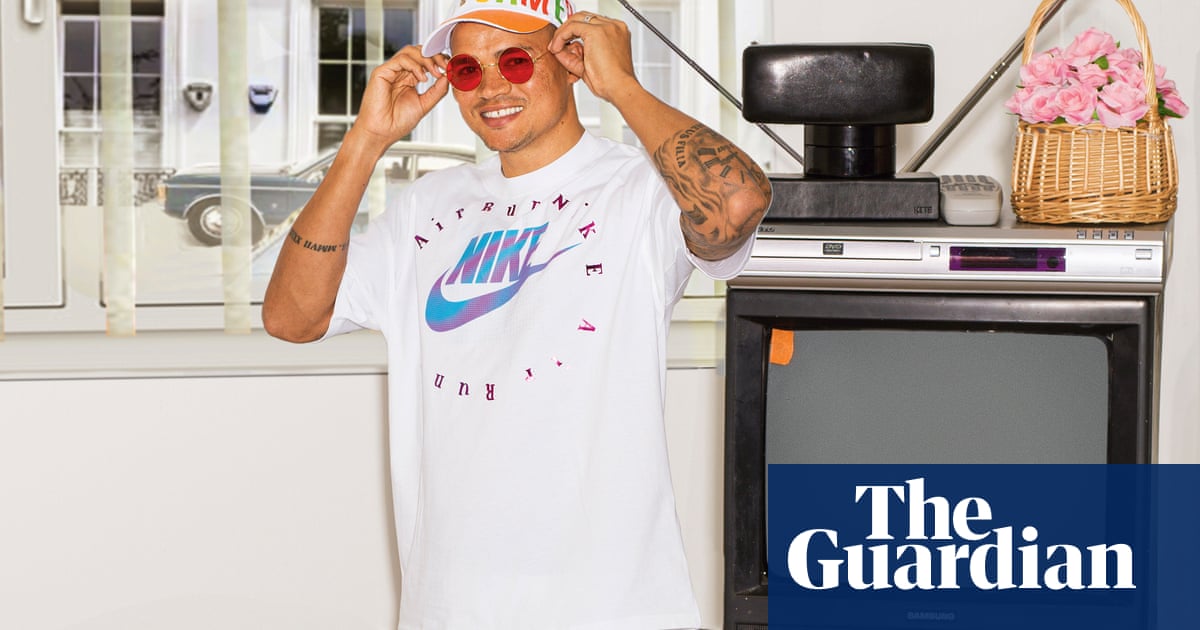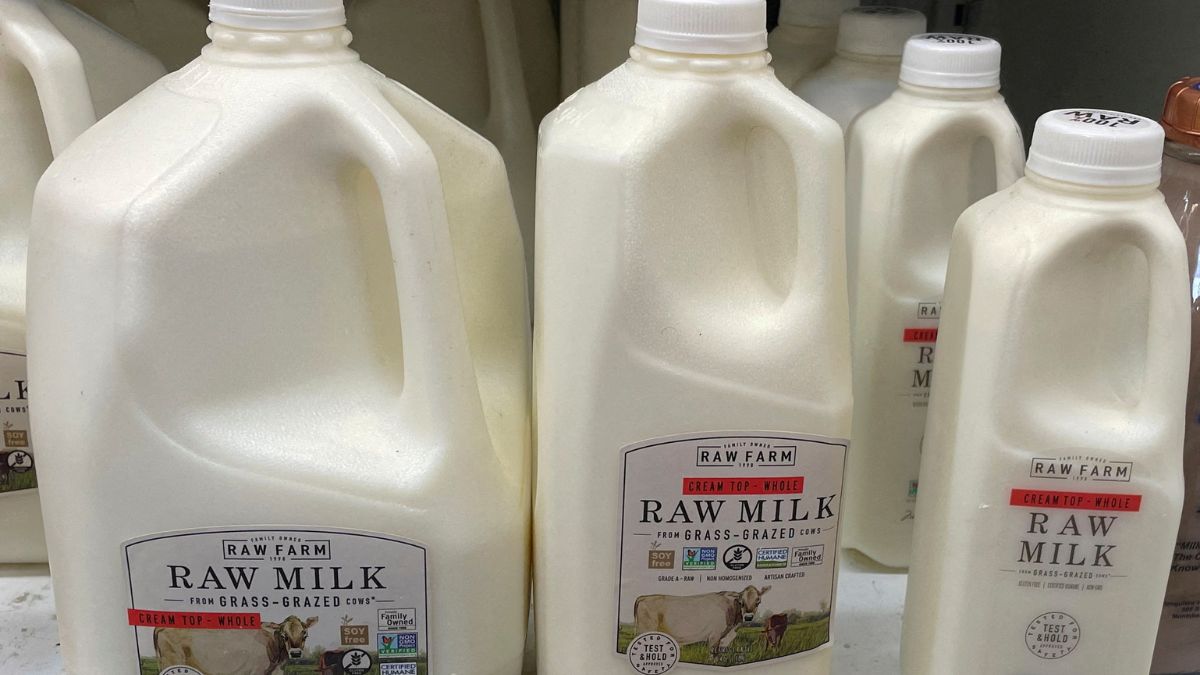Born in Nottingham in 1983, Jermaine Jenas is a Premier League footballer turned TV presenter. He made his debut at Nottingham Forest in 2001 and has played for Newcastle United, Tottenham Hotspur, Aston Villa and Queens Park Rangers, as well as the England team. Since retiring from the game in 2016, Jenas has established himself as one of the leading pundits on Match of the Day and is a host on The One Show. He has three children – two with his wife, and one from a previous relationship – and lives in Hertfordshire.
I wore this all summer. I liked to stick to the same outfits every day – Bermuda shorts or baggy shell suits. Wearing white as a nine-year-old who played football constantly was a risk, and I would have got dirty, but it didn’t matter. I was hanging out at my dad’s flat and I was happy. Life was easy: I had my two best friends, school was fun, and I loved football.
My parents split up when I was eight and I was at home with my mum 90% of the time. When I went to see Dad, things were more free. He would have parties on the weekend, and those speakers would have been playing lovers’ rock and R&B – reggae, Bobby Brown, Jodeci and Whitney. I was quite shy as a boy and I didn’t enjoy speaking to people I didn’t know, so those gatherings at Dad’s became important. Hanging out and joking with his friends gave me confidence.
I was always a well-behaved kid – there was no crazy stuff going on, even when I was a teenager. That was mainly because I was always so focused on football. Dad played semi-professionally in the 80s and would push me hard – he still thinks he’s better than me! But at a young age all I wanted was a career in football. I was obsessed. Every second I wasn’t in school I was kicking a ball. One by one my friends would disappear home when it got dark, but I’d be the last one left. Sometimes Mum would shout, “Come on, Jermaine – you’re taking the mick!” I knew I should go back, but I’d try as hard as I could to get away with playing for as long as possible.
If the council estate I grew up on was dangerous, it didn’t feel it. It wasn’t like today – with gun and knife crime, and acid attacks. There were robberies of cars and homes, and the odd fight, and there was definitely racism. We lived in a white area, but I never felt scared and I had so much love and protection from my family. But we were living in poverty. Dad moved to America about a year after this was taken, so Mum was trying to raise a son and daughter alone with no money at all. We had to put 50p in our telly to make it work. Watching her go through that was difficult but gave me an incredible work ethic and ambition.
At 18 I became the third most expensive teeanger in football [Newcastle United bought Jermaine for £5m from Nottingham in 2002]. It was weird suddenly having money. That photo shows me head to toe in Nike and I’ll never forget walking into one of the offices at Newcastle and seeing floor-to-ceiling boxes filled with trainers, shin pads, boots – every piece of apparel you could think of – sent to me by the brand. In the summer I would take all my friends down to Nike Town on Oxford Street. They’d get a trolley each and I’d say, “Fill it up!” We could have whatever we wanted.
At the same time, I didn’t know what to do with money. Nobody in my family had ever had it, so there was no education about investments. Instead I thought, “What can I buy? I can buy anything!” I got two cars and ended up with an astronomical insurance bill. Money also changed the family dynamic. While my mum could retire early and I was able to look after my sister and dad, clearing their debts, it brought out the worst in other people. There were family members constantly wanting things from me because I’d helped them out once. It got to me, but Mum said, “Focus on football, I’ll be there for you, Dad will be there for you, and that’s all you need.”
I was recovering from a hamstring injury at Queens Park Rangers when I properly wrecked my knee. I heard this massive click and I felt I was unable to move my leg in a certain direction. I went to have a scan, then got a phone call from a doctor saying, “Look, I’m sorry but you’ve got an anterior cruciate ligament, it’s ruptured. Everything is wrong with it.” Once I was off the phone I said to my wife, “I don’t know what I’m going to do.” She was optimistic, but I tried for the best part of 15 months to get back and eventually the surgeon told me I was going to have to call my football career a day. It was that or I wouldn’t be able to walk. The decision was taken out of my hands. It would become a blessing – but at first it was tough.
after newsletter promotion
Accepting that I wouldn’t play football was a kind of grief. I was scared of the lack of direction and it was completely unfamiliar to have nowhere to go – since the age of seven there was always a structure to my week, whether it was training or playing football. Suddenly I had nothing to do, nowhere to go, no purpose. As an ex-footballer, you become forgotten quickly – there are no calls from the clubs checking that you are OK. Even other players are fickle, as they are just colleagues. It’s easy to go missing but I had good friends from home, and an amazing wife who kept me together.
The transition from the pitch to the screen was definitely clouded by a bit of impostor syndrome. I worried: “Do I belong on TV?” But because I was fresh from the Premier League, I was able to ring players in the dressing rooms. I had new insight into the game and people responded to me well. The concept of turning 30 seemed like hell when it happened. I thought it was the start of the end. To some extent I was right – a year later I would be retiring.
But it was also the start of a brilliant new era. I loved turning 40. From a body perspective I’m fortunate that my life has revolved around being fit. I try to stick to my old routines, whether through dieting or working out. I can squat 100kg and I still run. I always think about Will Smith in I Am Legend doing pull-ups. If he could do it nearing 40, then I’ve got to get there, too.
I hope the people around me would say the kindness and manners that were instilled in me by my parents are still there. I had to become the man of the house from a young age and mature quicker than I would have done, but in doing so it gave me a drive to get up and contribute to the family. I want to pass that down to my own kids, even if our situation is different. A lack of money is not an excuse, nor is having too much: go and do the right things, work hard and your fortune will be returned.



)



